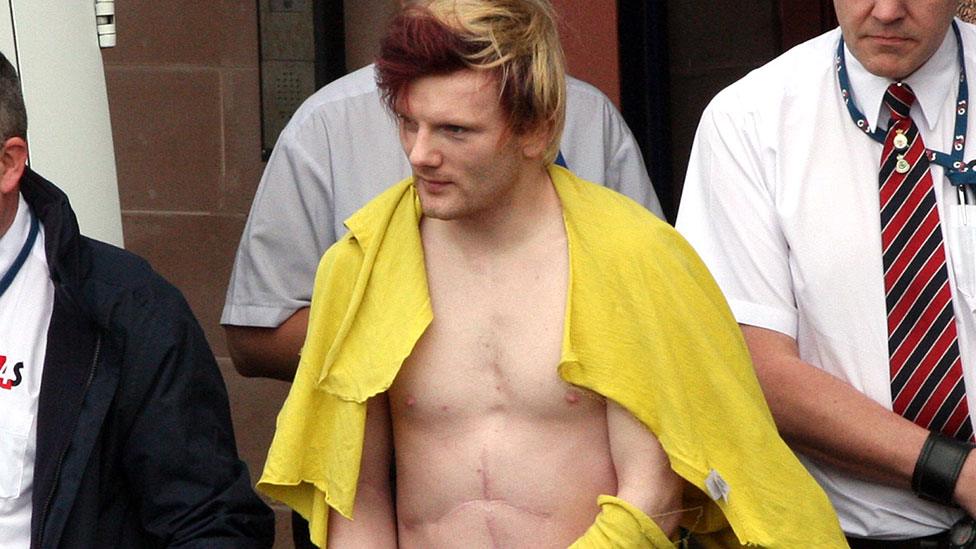Trans women inmates who hurt females to go to male prisons
- Published
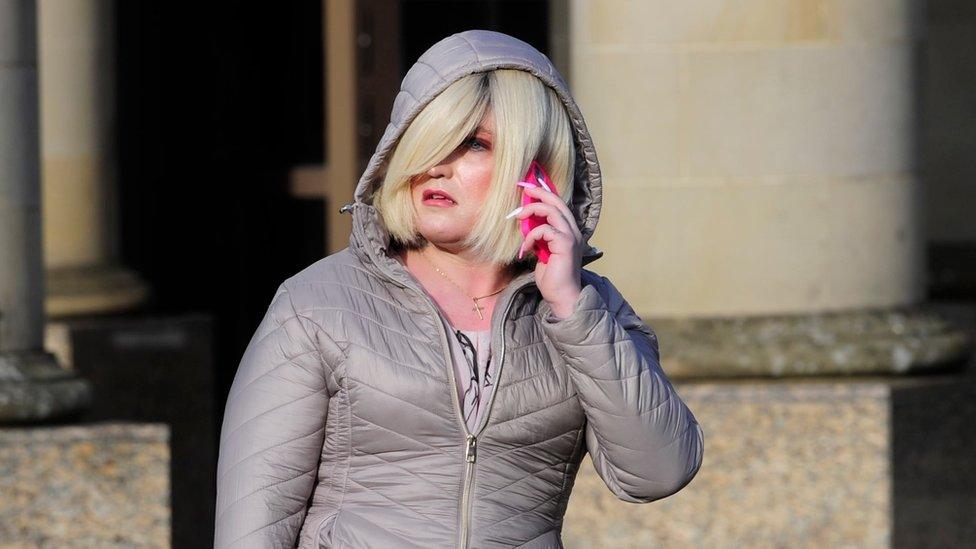
Double rapist Isla Bryson sparked an public outcry after being sent to a a women's prison
Trans women who have hurt or threatened women or girls will not be held in female prisons unless there are "exceptional" circumstances, new guidance states.
The Scottish Prison Service (SPS) policy follows a public outcry after a rapist was sent to a women's prison.
Isla Bryson raped two women while still known as Adam Graham.
The Scottish Conservatives said the new policy was "subjective" and "unacceptable".
The latest figures, external for Scotland show there were 23 trans prisoners from January to March this year.
They included 19 transgender women, seven of whom were in a women's prison, and four transgender men - one of whom was in a male prison.
Under previous guidance drawn up in 2014, the prison service allowed all prisoners to be placed in facilities matching their gender identity, rather than their sex at birth, providing accommodation that "best suits the person in custody's needs".
This was already subject to a review, but in February it was updated following the Bryson case to say no newly convicted or remanded transgender prisoner with a history of violence against women would be housed in female prison facilities.
The Scottish guidance does not go as far as in England and Wales, where rules introduced earlier this year banned trans women with male genitalia from female prisons, as well as those convicted of sexual offences or any violence.
The Daily Telegraph reported on Monday that there were only five transgender women left in female jails in England and Wales, external.
Under the new SPS policy - which will come into force in February 2024 - a trans woman would not be allowed to move into the female estate if they had been convicted of, or were on remand awaiting trial for, a crime that harmed a female - unless there was "compelling evidence that they did not present an unacceptable risk of harm to those in the women's prison".
These offences include any that result in suffering to a female, such as sexual offences, murder, assault, abduction and intimidation.
Those who have changed their legal gender can also be housed in accordance with their sex at birth, "if it is considered necessary to support people's safety and wellbeing".
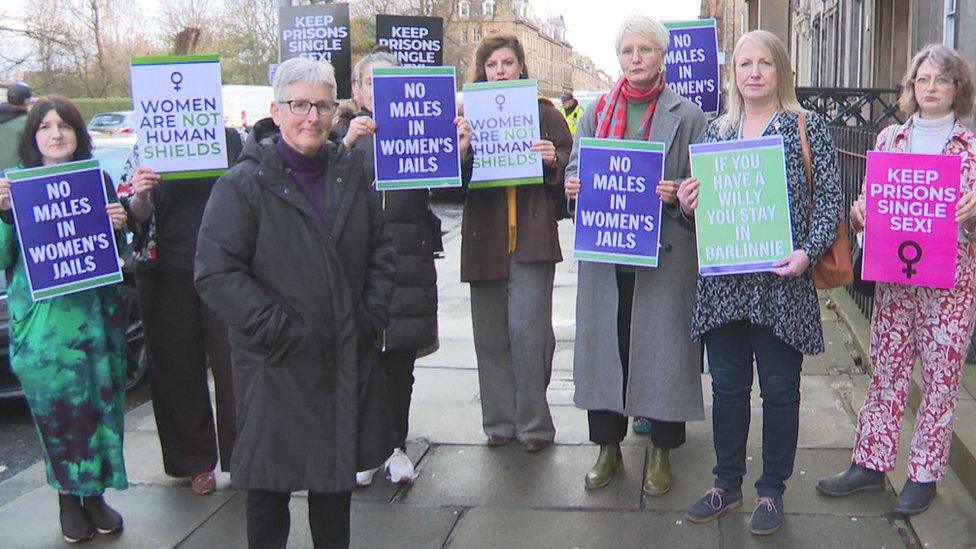
Former governor Rhona Hotchkiss (front) called for a blanket ban on trans women in female jails
The policy states: "Only when staff have enough information to reach a decision that a trans individual can be safely accommodated will they be placed in an establishment which matches their affirmed gender."
Trans men will be admitted to the female estate, but those who have committed crimes against women may be kept separate from other prisoners if it is "deemed necessary" to "keep women in custody safe".
The new guidelines also allow officers to search inmates regardless of the inmate's "affirmed gender" or sex assigned at birth, "if it is necessary to keep the individual or staff safe".
The Scottish government's Justice Secretary Angela Constance said the new guidelines protected the "safety and welfare" of staff and prisoners, and the "rights of transgender people".
She said: "SPS has considerable expertise, as well as a duty of care for the management of people in their custody, and this policy upholds its responsibilities to deliver safe, secure and suitable services for all."
Scottish Trans, external, a project run by government-funded charity Equality Network, welcomed the new policy, saying it continued to recognise prisoners should not be considered to be a risk of harm to others "simply because they are trans".
Manager Vic Valentine said: "We very much support that the policy outlines that decisions should be taken on the basis of evidenced risk assessment, with the safety of all prisoners the central consideration in each decision."
'Risks carefully managed'
Teresa Medhurst, chief executive of the Scottish Prison Service, said prisoners would be located to suit their "risk and needs profile", and if a trans woman's offences were historic and low level, they could be moved to the female estate in "exceptional" cases.
She said all prisoners were "treated with dignity and respect, with their rights upheld, and any risks carefully managed".
"The position, whilst it is still individualised, will ensure that those that have a history of violence against women and girls and present a risk to women will no longer be placed on admission in the women's estate."
She added that she was confident the new policy would address public concerns surrounding trans prisoners.
However, Rhona Hotchkiss, former governor of women's prison HMP Cornton Vale, told BBC Scotland the new policy was a "big disappointment" and called for a blanket ban on prisoners who were born male in the female estate.
"They have tried to write a policy that takes into account the Isla Brysons of the world, but it is fundamentally uninformed when it comes to recognising the risks men pose to women in prison," she said.
"We're talking about women who have lifetimes of abuse behind them, and their very reaction to a person they know to be male in close living space is one of re-traumatisation."

Isla Bryson identified as a women after initially appearing in court on rape charges as Adam Graham
Scottish Conservative justice spokesman Russell Findlay MSP said the new prison policy was "unacceptable" and put women at "even greater risk by further eroding their fundamental right to single-sex space".
He told BBC Radio's Good Morning Scotland programme "no male convicted of sexual violence" or violence against women should be in the female estate.
"After five long years of this document being worked on, the SPS has issued this policy document which effectively formally opens the door of women's prisons to those like Isla Bryson and other male-bodied violent criminals and sex offenders who say they identify as female."
Mr Finlay said moving any criminals who have committed crimes against women into female prisons was "taking a gamble".
He said: "The document doesn't explain this in any level of sufficient detail. It says that those male-bodied criminals can be sent into the women's estate unless there is 'compelling evidence'… and they do not present an 'unacceptable risk of harm'. Not only is this completely subjective, but it's impossible to predict. What risk level is deemed to be acceptable?"
He said women's groups had been outraged that the SPS had not followed policies in England and Wales that were "much more stringent and transparent" and went further to prioritise the rights of women in prison.
A statement, external from campaign group Keep Prisons Single Sex said they were "dismayed" the "shameful" policy did not present evidence behind its decisions or address the safety of women.
"Let's be quite clear: there is no degree of risk a convicted rapist presents to women that is ever 'acceptable'," it said.
The SPS policy was welcomed by HM Inspectorate of Scotland.
A spokesperson added: "It will be important to monitor how the new policy and assurance processes work in practice, but HMIPS supports the underlying principles behind the new policy."
- Published10 February 2023
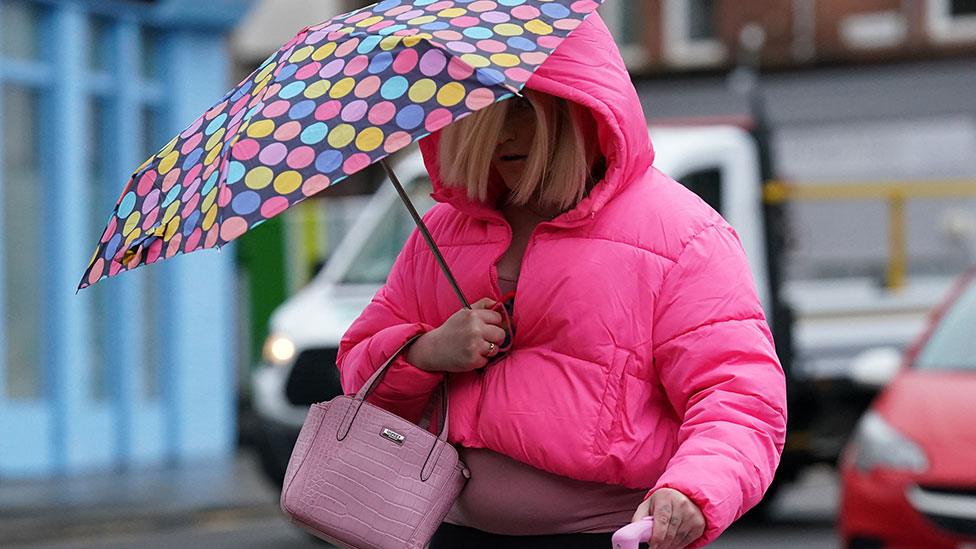
- Published28 February 2023

- Published27 February 2023
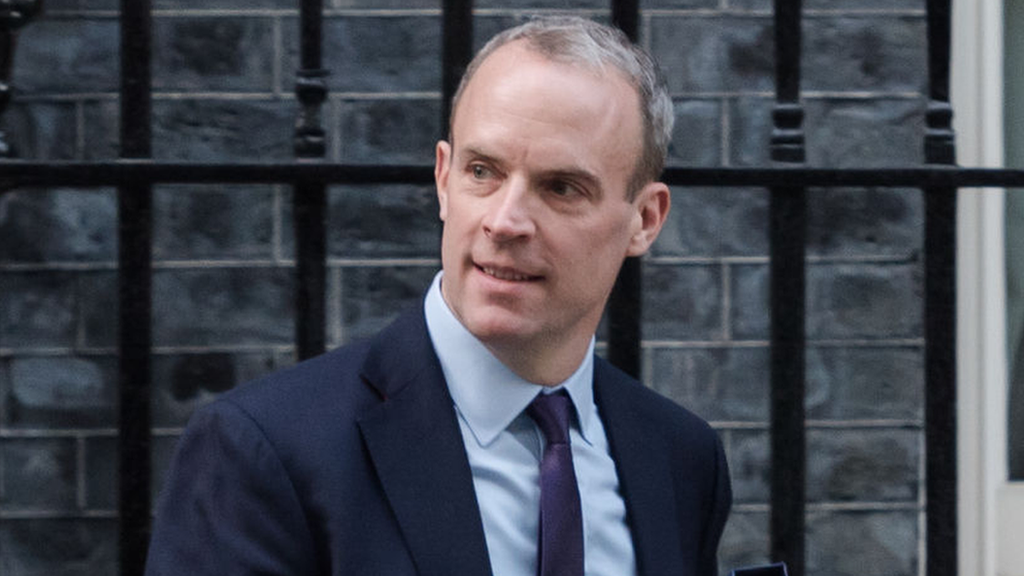
- Published10 February 2023

- Published28 January 2023
